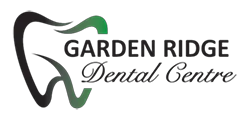Exams
A dental examination is a comprehensive evaluation of your oral health conducted by a dentist. These exams are crucial for maintaining good oral hygiene and preventing dental issues.
Here’s a detailed look at what typically happens during a dental examination:
- Medical History Review: The dentist or dental hygienist will start by reviewing your medical and dental history. This helps them understand any underlying conditions or medications that might affect your oral health.
- Visual Examination: The dentist will visually inspect your teeth, gums, and mouth. They look for signs of tooth decay, gum disease, and other oral health issues. This includes checking for cavities, plaque, and tartar buildup.
- X-Rays: Dental X-rays are often taken to provide a detailed view of your teeth and jawbone. X-rays help detect problems that are not visible during the visual examination, such as impacted teeth, abscesses, cavities, cysts, tumors, and bone loss.
- Gum Health Check: The dentist will examine your gums for signs of periodontal (gum) disease. They may use a small probe to measure the depth of the gum pockets around your teeth. Healthy gums have shallow pockets, while deeper pockets can indicate gum disease.
- Oral Cancer Screening: An essential part of the dental exam is screening for oral cancer. The dentist will check your mouth, throat, and neck for any unusual lumps, sores, or discolorations.
- Bite and Jaw Alignment: The dentist will assess your bite and jaw alignment to ensure there are no issues with your temporomandibular joint (TMJ) or other alignment problems that could cause discomfort or affect your oral health.
- Professional Cleaning: Often, a dental examination includes a professional cleaning by a dental hygienist. This involves removing plaque and tartar from your teeth, polishing them, and sometimes applying fluoride treatment to strengthen your enamel.
- Discussion and Recommendations: After the examination, the dentist will discuss their findings with you. They will provide recommendations for any necessary treatments, such as fillings, crowns, or other procedures. They will also offer advice on maintaining good oral hygiene at home.

Here’s a detailed look at what typically happens during a dental examination:
- Medical History Review: The dentist or dental hygienist will start by reviewing your medical and dental history. This helps them understand any underlying conditions or medications that might affect your oral health.
- Visual Examination: The dentist will visually inspect your teeth, gums, and mouth. They look for signs of tooth decay, gum disease, and other oral health issues. This includes checking for cavities, plaque, and tartar buildup.
- X-Rays: Dental X-rays are often taken to provide a detailed view of your teeth and jawbone. X-rays help detect problems that are not visible during the visual examination, such as impacted teeth, abscesses, cavities, cysts, tumors, and bone loss.
- Gum Health Check: The dentist will examine your gums for signs of periodontal (gum) disease. They may use a small probe to measure the depth of the gum pockets around your teeth. Healthy gums have shallow pockets, while deeper pockets can indicate gum disease.
- Oral Cancer Screening: An essential part of the dental exam is screening for oral cancer. The dentist will check your mouth, throat, and neck for any unusual lumps, sores, or discolorations.
- Bite and Jaw Alignment: The dentist will assess your bite and jaw alignment to ensure there are no issues with your temporomandibular joint (TMJ) or other alignment problems that could cause discomfort or affect your oral health.
- Professional Cleaning: Often, a dental examination includes a professional cleaning by a dental hygienist. This involves removing plaque and tartar from your teeth, polishing them, and sometimes applying fluoride treatment to strengthen your enamel.
- Discussion and Recommendations: After the examination, the dentist will discuss their findings with you. They will provide recommendations for any necessary treatments, such as fillings, crowns, or other procedures. They will also offer advice on maintaining good oral hygiene at home.
